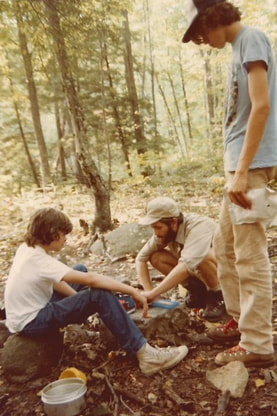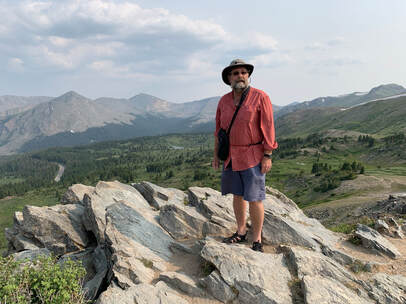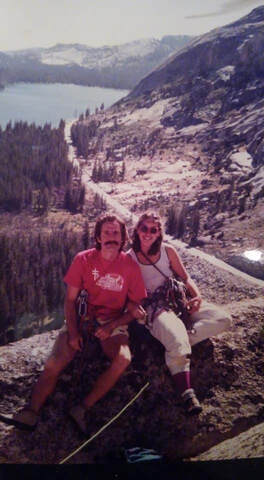|
In February 2022, Keith received the Best Effort Award for Land Ethics and Conservation from the Bowmans Hill Wildflower Preserve. This recognized the creation of the Potomac Valley Native Plant Collection at Meadowlark. Recently, Keith spent four months with the American Horticultural Society helping them with a needs assessment for various new projects. He left to assist with a new grandchild – but is continuing to consult with them on education and travel programs. During the forty years he worked as an interpretive naturalist and natural resource manager, he has studied wilderness areas and botanical gardens in Asia, the Pacific, Africa, Australia, the Americas and Europe. When and why did you become interested in nature and the natural world? Keith cannot remember when he wasn’t interested in nature. While his father was not an outdoor person, his mother was always outdoors – taking him on walks through the local parks and enjoying being outside whenever the weather permitted. He has always been fascinated by birds but said he’s not a “lister – I just enjoy them in the environment in which I see them.” While enjoying outdoor sports such as rock climbing, mountaineering or traveling the globe, Keith was fascinated with the natural world and the native ecosystems. He is particularly interested in regional flora. He has been to more than 100 botanical gardens in nearly 40 countries around the world where he always makes a point of visiting native plant collections. What is the most amazing thing you have experienced in nature? In his travels around the world, Keith has seen many amazing things in nature, including lava flowing into the sea on the big island of Hawaii. “It was stunning to essentially see earth being created,” he said. But one experience in nature stands out more than any other. During his gap decade between high school and college, Keith worked for the Montgomery County School System, taking students on white water rafting, camping and climbing trips. One of those trips stands out vividly in his memory. “It was early May and we were hiking Old Rag to camp on the summit, which was allowed back then,” he explained. The following day they climbed up Mount Robertson and then dropped into Weakley Hollow where they were met by the most phenomenal site. It was covered in wildflowers. “I was blown away. I had never seen such a diversity of flowers in my life,” Keith stated. That experience was an epiphany for Keith, who decided to go to college and study plants.
But he cautions that we need to be realistic. The nursery stock is still 99% ornamental plants. “We can’t set the world back 500 years before Europeans started altering the landscape on a vast scale,” Keith explained. “You can have native and nonnative plants which are not aggressive that remain ecologically stable.” He also noted that climate change is having an immense impact on our existing native plants. “Red maples are becoming prolific and grapevines more aggressive.” Actions that we can take include legislation like that adopted by Oregon which prohibits the sale of English ivy.
Tell us about your work as a Seasonal Naturalist, Potomac Overlook Regional Park and Smithsonian Associates Study Tour Leader “As native plant specialist, I really enjoy introducing new plants to park visitors,” Keith stated. “I always stress that all native plants in cultivation support our regional biodiversity,” he emphasized. “Native plants are patronized by many insects, birds, mammals, and even reptiles.” He tells park visitors that when they use native plants in their yard, they’re supporting the local ecosystem – and in turn, entire eco-regions. “Our area is truly diverse and a great place to grow natives,” he explains that folks will be amazed at the diversity of life that appears as their “native-scape” garden matures over time. As a local study leader for Smithsonian Associates, he has led guided tours for over 20 years. These have included tours to the Chesapeake Bay, West Virginia Highlands, Shenandoah and Great Falls National Parks. Keith maintains a blog – keithtomlinson.blogspot.com – that includes articles on botanical gardens he has visited as well as information on environmental education and nature resource management with a focus on plant diversity conservation. He is careful to explain that he is an interpretive naturalist – not a scientist. “I try to make nature ‘accessible’ to the general public by sharing experiences with them in natural areas.” Interviewed by Charlene Uhl, May 2022 Comments are closed.
|
AuthorWrite something about yourself. No need to be fancy, just an overview. Archives
December 2023
Categories
All
|



 RSS Feed
RSS Feed